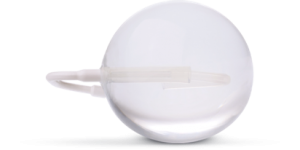Anyone who may be experiencing digestive issues will be interested to learn about potential Crohn’s disease causes. Not only does this condition affect millions of individuals, but it can dramatically impact quality of life. The good news is that medical science has been able to shed a great deal of light on its causes, risk factors and possible treatment options. Let’s therefore take a quick look at Crohn’s disease and how it influences our health.
What is Crohn's Disease?
Crohn’s disease is an ongoing inflammation of the digestive tract (the small and large intestines). As a result it can be difficult to absorb vital nutrients from the foods that we eat. This condition is also associated with a handful of chronic symptoms which often include:
- Diarrhea and/or constipation.
- Rectal bleeding.
- Cramps and bloating.
- The inability to digest certain foods.
- A lack of appetite.
As a general rule of thumb, the symptoms outlined above will not improve without some type of medical intervention.

What are the Risk Factors for Developing Crohn's Disease?
While there are several situations that could increase the chances of developing this condition, three of the most prevalent risk factors include:
- Family history (genetics).
- Age.
- Obesity.
Note that certain lifestyle habits such as a poor diet, a lack of exercise and smoking cigarettes have likewise been shown to represent contributing factors. This is why a physician will examine various metrics in order to determine what might have led to the development of Crohn’s disease.
What Typically Causes this Condition?
In the past, the most common Crohn’s disease causes were thought to revolve around diet and emotional stress. However, recent research seems to indicate that these scenarios may exacerbate a condition that might have already been present. It is nonetheless believed that autonomic inflammatory responses from the immune symptom could increase the chances of developing this disease.
Furthermore, heredity (as outlined previously) is becoming better understood in relation to Crohn’s disease. Individuals who have family members that have already been diagnosed with Crohn’s disease are thought to be more likely to develop symptoms over time.
Crohn's Disease vs Ulcerative Colitis
It is important to highlight the differences between Crohn’s disease and ulcerative colitis. Although the symptoms are often similar, the root causes are not the same. In most cases, Crohn’s disease will not affect the entire colon. In other words, some portions of the digestive tract will remain healthy and able to absorb nutrients.
Ulcerative colitis is associated with an inflammation of the entire digestive tract. Note that Crohn’s disease will often impact all of the layers of the bowel walls in certain locations.

Crohn's Disease Treatment Options
Unfortunately, there is no known cure for this condition. This is why the most effective approach involves developing a well-rounded Crohn’s disease management plan. Prevention will go a long way in this sense. For example, here are three universal recommendations to embrace:
- To quit smoking.
- To exercise on a regular basis.
- To include a diet high in fruits and vegetables while low in saturated fat.
It could also be wise to learn how to cope with psychological stress due to its suspected role in relation to Crohn’s disease.
Furthermore, it is often possible to alleviate some of the most troubling symptoms. Medications may be prescribed (such as immunomodulators and corticosteroids) in order to reduce inflammation and therefore, to mitigate feelings of pain and bloating. There may also be times when fasting can produce beneficial short-term results, as this will provide an opportunity for the digestive system to rest and recover. In rare cases, surgery could be warranted to remove a portion of the bowel that is no longer functioning as it should.
If you have been diagnosed with Crohn’s disease (or any type of irritable bowel condition) and you are considering treatment with the Spatz3 adjustable gastric balloon, it is always wise to consult with your personal physician and to contact one of our trained specialists. We can provide additional suggestions and advice.
Although the exact Crohn’s disease causes have yet to be fully understood, there are still a number of ways in which you can alleviate the symptoms and improve your overall quality of life.


